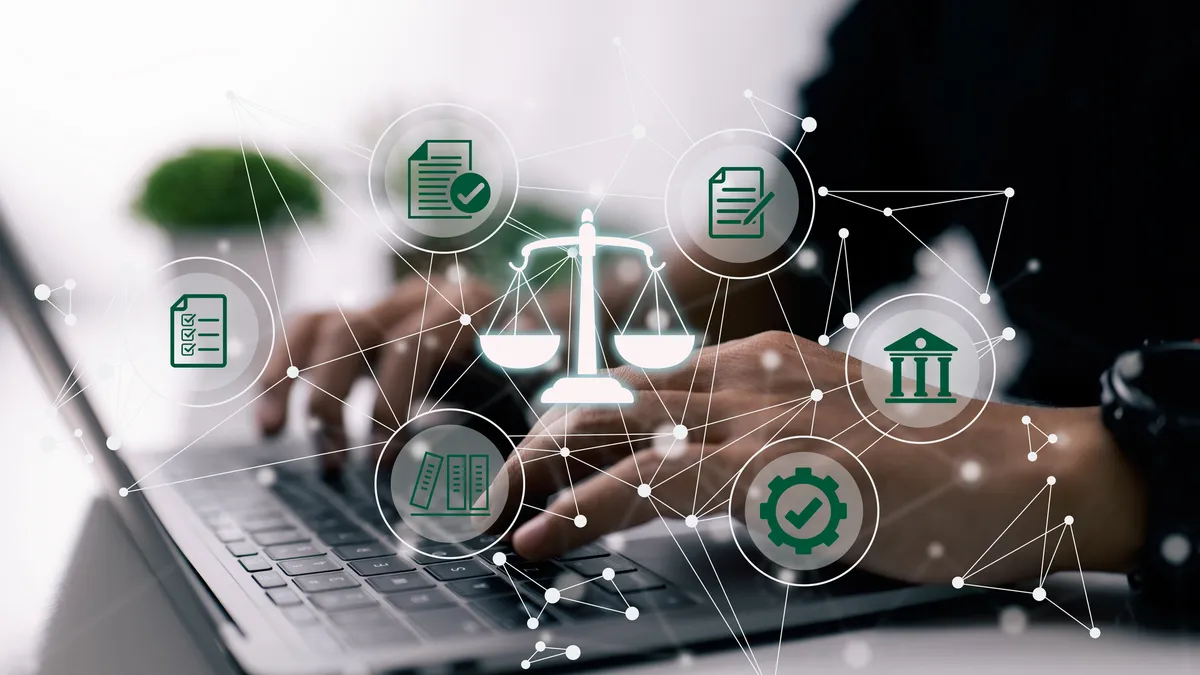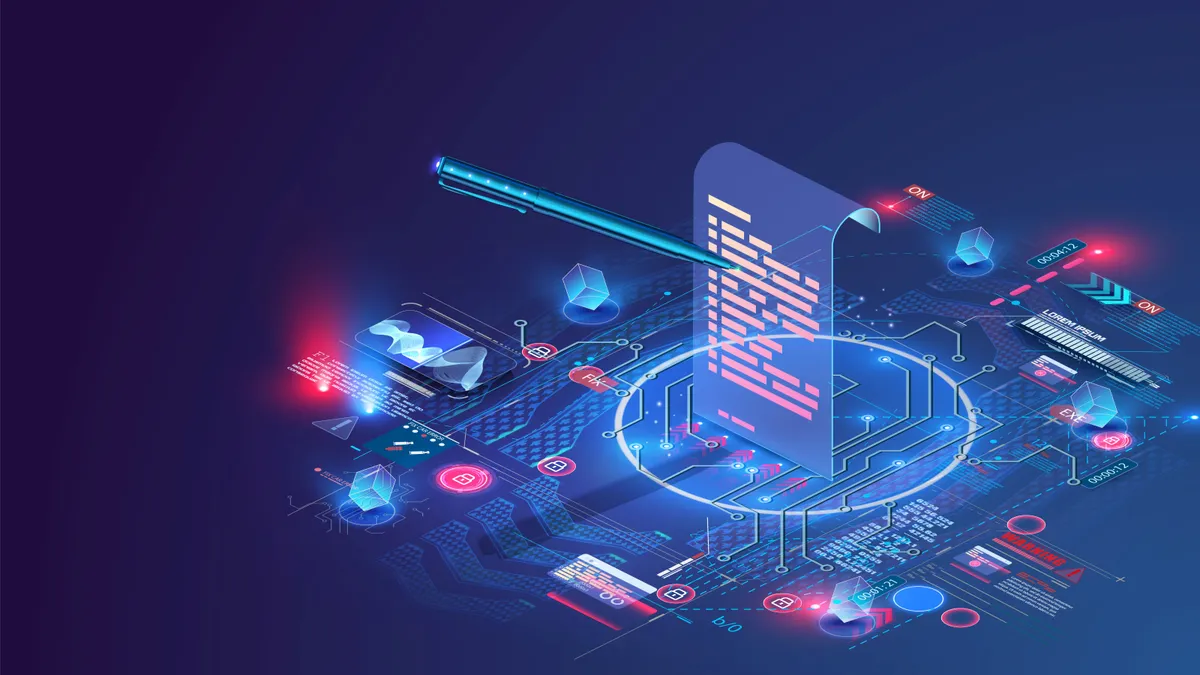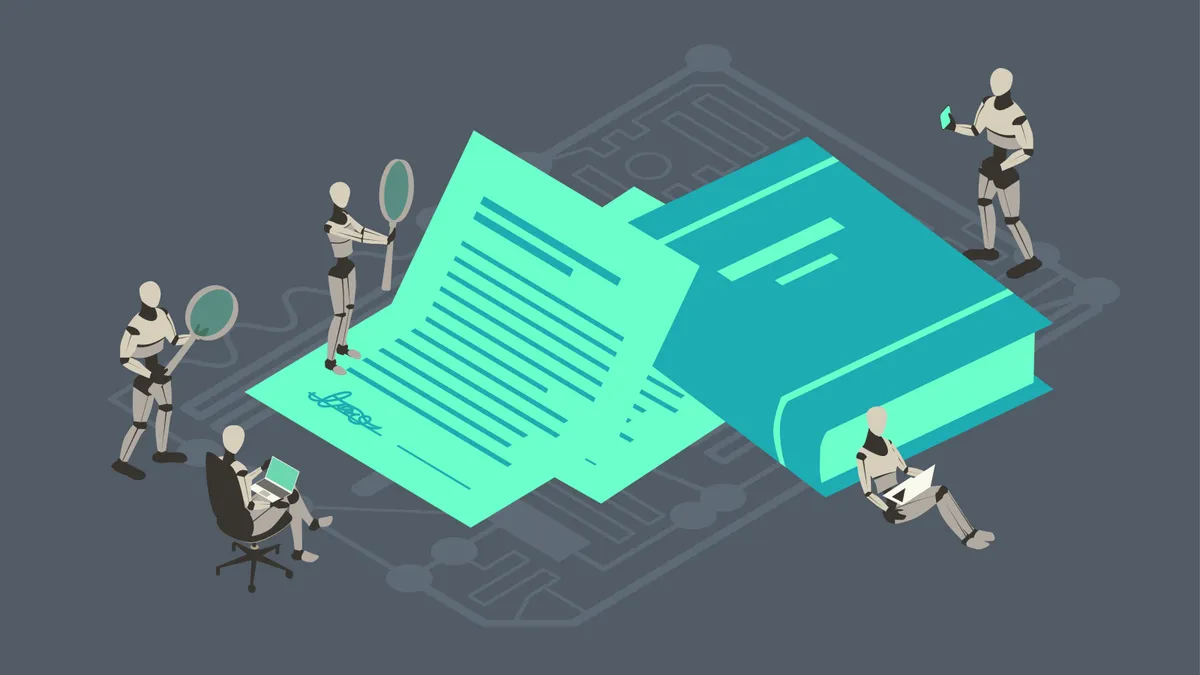Laura Richardson is general counsel of legal technology company Agiloft. Views are the author’s own.
The traditional role of the chief legal officer and general counsel is undergoing a shift. No longer confined to litigation, contracts and compliance, the legal function is expanding to encompass strategic business objectives. As businesses navigate an increasingly complex and dynamic landscape, the CLO emerges as a critical driver of organizational success.
Broader charter
The CLO is confronted with a multifaceted role that extends far beyond the traditional legal remit. Global risk management, compliance and environmental, social and governance issues have taken center stage, demanding a comprehensive approach from the legal function. This evolution necessitates transforming the legal department into a strategic business partner capable of addressing legal challenges and driving business growth.

Legal teams must embrace a data-driven, process-oriented, and agile mindset to achieve this. By leveraging technology and analytics, legal departments can optimize operations, enhance efficiency, and deliver clear value to the business. Moreover, a focus on scalability, legal operations and human capital development is essential to ensure that the legal function can keep pace with the evolving demands of the business.
Data-driven approach
Data is the lifeblood of the modern legal department. By harnessing the power of data, legal teams can gain valuable insights into their operations, identify areas for improvement, and make data-driven decisions. For instance, analyzing contract data can reveal patterns, risks, and opportunities for standardization and automation. Furthermore, data can be used to demonstrate the legal function's impact on the business, building credibility and securing necessary resources.
A key aspect of data-driven legal operations is the ability to measure and quantify the legal function's performance. By establishing key performance indicators and tracking relevant metrics, legal departments can demonstrate their value to the business and identify areas for improvement. This includes metrics such as contract turnaround time, matter closure rates, and cost per matter.
Human focus
While technology is a critical enabler, the human element remains indispensable. A high-performing legal team comprises skilled professionals equipped with the right tools and empowered to deliver exceptional results. Investing in employee development, fostering a positive work culture, and promoting work-life balance are essential to attracting and retaining top talent.
To build a high-performing legal team, developing a culture of innovation and continuous learning is crucial. This involves encouraging employees to share ideas, experiment with new approaches, and embrace change. Additionally, providing opportunities for professional development and career advancement can motivate and retain employees.
Overcoming challenges
Transforming the legal function has its challenges. Resistance to change, budgetary constraints, and the need to balance legal risk with business opportunities are just a few hurdles that CLOs must overcome. To succeed, legal leaders must build strong relationships with business partners, communicate effectively, and demonstrate the value of the legal function in driving business outcomes.
One key challenge in transforming the legal function is gaining buy-in from the business. To overcome this, legal leaders must effectively communicate the legal department's value proposition and demonstrate how it can contribute to the overall business strategy. This involves telling compelling stories about the impact of legal work on the bottom line and showcasing the legal team's ability to mitigate risks and create opportunities.
Role of technology
Technology is a powerful tool that can transform the legal function. By leveraging legal technology solutions such as contract management software, e-discovery platforms, and artificial intelligence, legal departments can improve efficiency, reduce costs, and enhance decision-making.
For example, contract management software can automate routine tasks, such as contract creation, review, and approval, freeing legal teams to focus on higher-value work. E-discovery platforms can help legal teams efficiently collect, review, and produce electronic data in litigation and investigations. Artificial intelligence can be used to automate tasks, such as contract analysis and due diligence, improving accuracy and reducing costs.
The future of the legal function
The legal function is at a crossroads. By embracing a data-driven, process-oriented, and human-centric approach, CLOs can position their departments as strategic partners and drive significant value for the business. The future of the legal function lies in its ability to adapt to change, leverage technology, and develop the talent necessary to succeed in an increasingly complex and competitive environment.
As the business landscape evolves, the role of the CLO will only become more critical. By reimagining the legal function and embracing the opportunities presented by digital transformation, CLOs can help their organizations navigate challenges, seize opportunities, and achieve long-term success.
To realize the potential of the legal function, CLOs must also focus on developing a strong legal operations team. Legal operations professionals are critical in driving efficiency, improving processes, and implementing technology solutions. By investing in legal operations, CLOs can create a more agile and responsive legal function.
Ultimately, the success of the legal function depends on the ability of CLOs to build a high-performing team, leverage technology, and forge strong partnerships with the business. By doing so, legal departments can become true business partners and drive value for the organization.


















